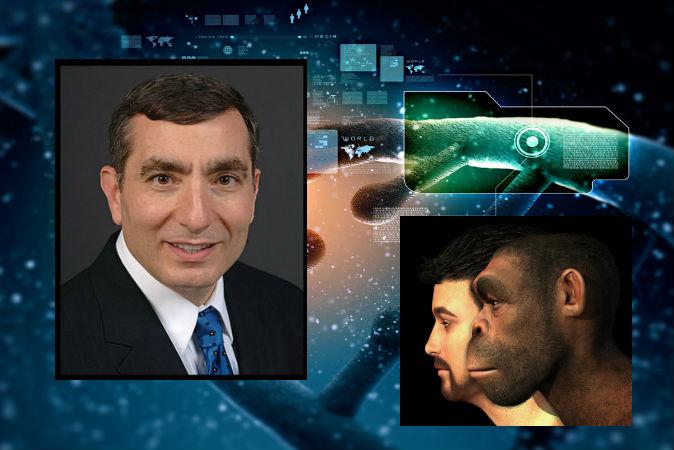Dr. James Tour understands microevolution, he has observed it often in the lab. But macroevolution—the evolution that, according to Darwinism, changed entire species, morphed organs, accomplished so many complex developments simultaneously to form human beings and the flora and fauna of our world—stumps Dr. Tour. He has no idea how this could work, and neither do the Nobel Prize winning chemists and National Academy members he’s asked to explain it.
Behind closed doors, Tour says, the leading chemists in the world will admit they have no idea how evolution works. He’s called out to the scientific community in search of anyone who can explain to him how macro-evolution could work, and not a single chemist has met the challenge.
Dr. Tour was confirmed as one of the 10 most-cited scientists in the world in 2010. His work on nanotechnology is world-renowned. He is a chemistry professor at Rice University, he received his Ph.D. in organic chemistry at Purdue University and was a post-doctoral Fellow at Stanford University.
He does not espouse intelligent design, but he is open about his faith in God. He is a Messianic Jew, who “does not wear his religion on his sleeve, but … will bring it up if asked, and if asked … does not hold back,” his colleagues told the Houston Chronicle in 2010.
He said during a talk at Georgia Tech on Nov. 1, 2012 titled “Nanotech and Jesus Christ,” posted on YouTube (skip forward to about 52 minutes into the video if you want to watch it yourself):
“I will tell you as a scientist and a synthetic chemist, if anybody should be able to understand evolution, it is me, because I make molecules for a living, and I don’t just buy a kit, and mix this and mix this, and get that. I mean, ab initio, I make molecules. I understand how hard it is to make molecules.
“I don’t understand evolution, and I will confess that to you. Is it OK, for me to say, ‘I don’t understand this’? Is that all right? I know that there’s a lot of people out there that don’t understand anything about organic synthesis, but they understand evolution. I understand a lot about making molecules; I don’t understand evolution. And you would just say that, wow, I must be really unusual.
“Let me tell you what goes on in the back rooms of science—with National Academy members, with Nobel Prize winners. I have sat with them, and when I get them alone, not in public—because it’s a scary thing, if you say what I just said—I say, ‘Do you understand all of this, where all of this came from, and how this happens?’ Every time that I have sat with people who are synthetic chemists, who understand this, they go, ‘Uh-uh. Nope.’ … And if they’re afraid to say ‘Yes,’ they say nothing. They just stare at me, because they can’t sincerely do it.”
Tour’s talents in the lab have earned him praise. For example, his nanocars pushed far beyond expectations. They are literally molecules that look and move like cars, and he created for them a motor that makes 3 million revolutions per second. This is way faster than could be expected in building even a macroscopic car. The first version of his nanocar had a motor that made only 1.8 revolutions per minute.
“He is just incredibly creative as a chemist,” Wade Adams, director of Rice’s Smalley Institute for Nanoscale Science and Technology, told the Chronicle. “He makes molecules dance.”
But Tour has felt the scorn in academia for his open declarations about evolution. “When appointments are not made, when fellowships are not granted on this basis, that hurts. ... I’m willing to stand up and say I don’t see any clothes on that emperor. I’m being very open. That bothers a lot of people. I don’t know why,” he told the Chronicle. The Rice administration has continued to support Tour, however.
In his talk at Georgia Tech, Tour recalled a conversation he once had with a bio-engineer in Israel: “[The bio-engineer was] describing to me the ear, and he was studying the different changes in the modulus of the ear, and I said, ‘How does this come about?’ And he says, ‘Oh, Jim, you know, we all believe in evolution, but we have no idea how it happened.’”
Follow @TaraMacIsaac on Twitter, visit the Epoch Times Beyond Science page on Facebook, and subscribe to the Beyond Science newsletter to continue exploring the new frontiers of science!





